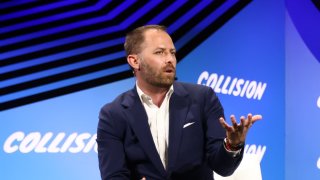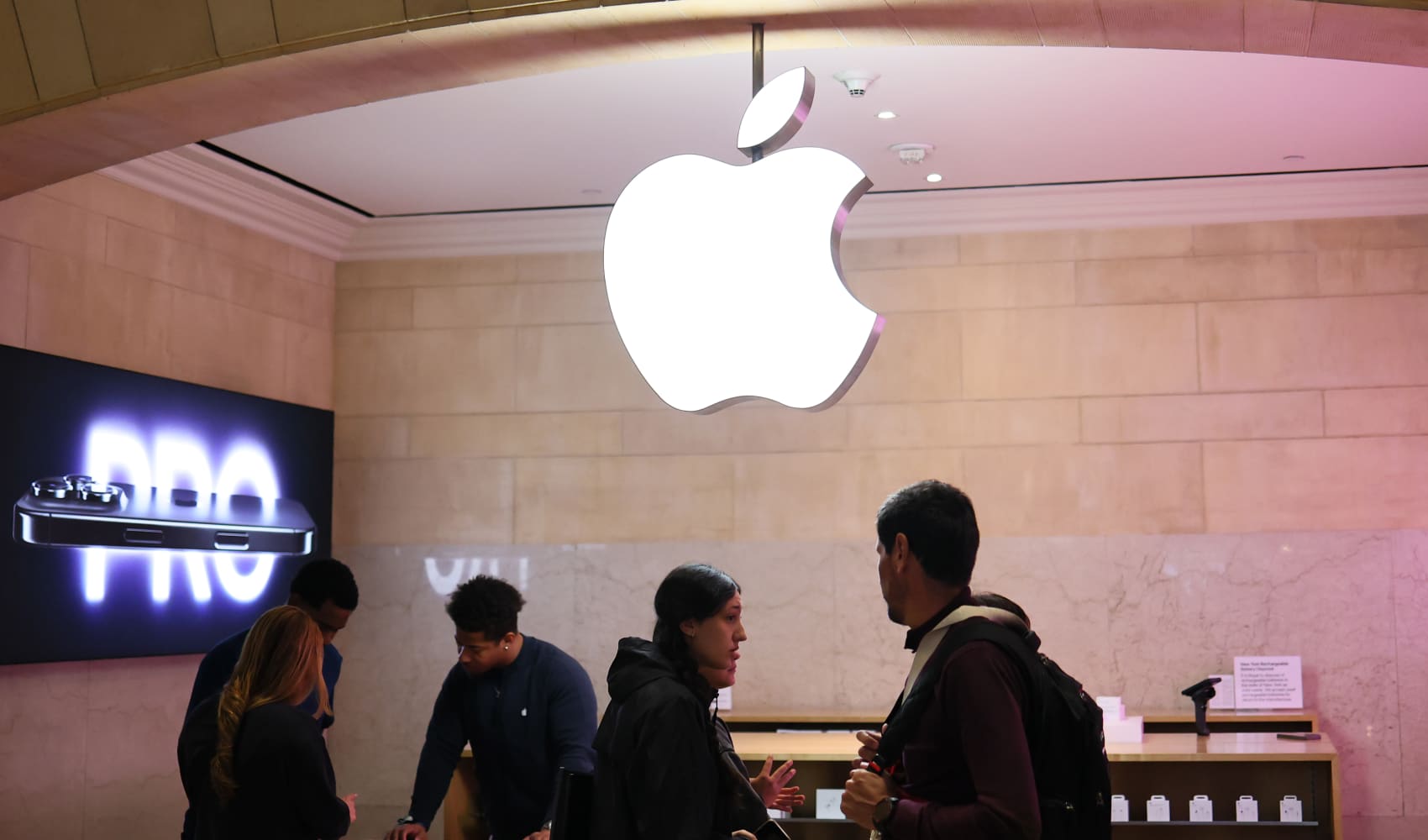
Michael Ramlet, co-founder and CEO of Morning Consult, on Saas Monster Stage during Day 2 of Collision 2022 at Enercare Centre in Toronto, Canada.
Michael Ramlet's best employees consistently share a single soft skill, he says: intellectual curiosity.
"That is the common trait, whether it's out of my co-founders [or] it's somebody that walks in the door just out of school," says Ramlet, the co-founder and CEO of global data intelligence firm Morning Consult.
Insatiable curiosity is perhaps obviously important for the data intelligence industry, Ramlet notes — but it'll become more crucial for nearly every other type of job as the artificial intelligence industry grows, he says.
"You think about [generative AI] chat prompts and ... [humans] still have to ask the question," says Ramlet. "So that intellectual curiosity is, I think, going to be a distinguishing trait, not just for those of us at Morning Consult, but across the board."
Get top local stories in Connecticut delivered to you every morning. Sign up for NBC Connecticut's News Headlines newsletter.
Multiple CEOs and high-powered businesspeople attribute their success to their intellectual curiosity. Billionaire Microsoft co-founder Bill Gates, for example, says it's the one trait that sets him apart from most people.
Gates is known for his voracious reading habit, and has said that he regretted dropping out of Harvard University simply because of how much he loved intensively studying a wide variety of subjects.
"I enjoyed the classes, including some that I just sat in on: psychology, economics, history courses," Gates told CNBC Make It in February. "I loved having smart people around. We could sit and talk late into the night about very interesting things."
Money Report
DON'T MISS: How to start a side hustle to earn extra money
Amazon CEO Andy Jassy has a similar outlook, he told LinkedIn's "The Path" podcast in May 2024. Jassy, 57, was a paralegal, sports production assistant, product manager and investment banker before joining Amazon in 1997. He learned more about himself and the work he was doing with each career change, he said.
Everyone has personal interests, of course. Successful people often use what they know and learn — about any passion topic, work-related or not — to provide insight that's otherwise missing in their workplace, former DoorDash and Google recruiter Nolan Church said in August.
"What continuous learners do is: They connect old ideas in new ways," said Church, citing Apple co-founder Steve Jobs' decision to combine cell phones and iPods into an iPhone. "And that is, in my mind, the definition of innovation."
Indeed CEO Chris Hyams' advice: Show off your inquisitiveness during job interviews or conversations with your boss. Try to paint a picture of your ability to adapt and solve problems, which are both highly desirable qualities in employees, he said in February.
One of his favorite job interview questions, he said, is, "What are you insanely curious about?" Or, alternatively, "What do you care deeply about?"
"I'm actually more interested if it's not a work-related thing," said Hyams. "If you can spend 45 minutes talking about baking sourdough, and the 57 different recipes that you've tried, the experimentation with temperature and hydration ... When people have that intense curiosity ... it's just a question of, what else can you fall in love with?"
Want to earn some extra money on the side? Take CNBC's new online course How to Start a Side Hustle to learn tips to get started and strategies for success from top side hustle experts. Sign up today and use coupon code EARLYBIRD for an introductory discount of 30% off $97 (+taxes and fees) through April 1, 2025.
Plus, sign up for CNBC Make It's newsletter to get tips and tricks for success at work, with money and in life.






